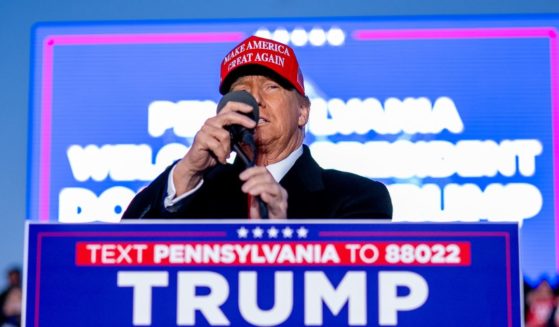Russia warms to controversial TUEs after doping scandals
MOSCOW (AP) — After years of using hacked data to vilify Western athletes as cheats who bend the rules to take banned substances, Russia is warming to a controversial part of the anti-doping system.
Russian President Vladimir Putin said in 2017 that the country’s rivals were using Therapeutic Use Exemptions to game the system. The exemptions allow athletes to treat medical conditions with substances that would otherwise be banned.
If they were really ill, Putin said, “maybe they should enter the Paralympics.”
Late last month, though, Putin gave a high-profile speaking slot at a meeting of his Fitness and Sports Council to a veteran gymnastics official who urged Russians to apply for more TUEs.
“We must use this opportunity on a legal basis,” Irina Viner-Usmanova told the televised meeting, calling on the sports ministry and the government’s Federal Medical-Biological Agency to help.
Russia’s years of doping scandals, she said, had taught Russia to use legitimate avenues properly.
“This experience let us be more attentive and law-abiding when taking medical products,” Viner-Usmanova said.
Statistics show TUEs are in demand as Russia returns to sports following bans, like from last year’s Winter Olympics.
The Russian anti-doping agency, known as RUSADA, received a record 101 TUE applications last year, and is on track to breeze past that number this year. After years when doping was widespread in Russian sport, the agency hails the rise as the result of better education and legitimate sports medicine.
Despite the rise in applications, RUSADA says athletes and team doctors struggle to understand the system. Only 22 applications were approved last year.
Officials from RUSADA and the UK Anti-Doping Agency, which handled Russian TUEs until September, turned down applications which lacked medical documents, or from athletes asking for medicines that weren’t actually banned.
RUSADA deputy CEO Margarita Pakhnotskaya argued that even the more clueless applications at least indicate growing respect for the rules. She said “one or two” filings seemed like an attempt to cheat and were passed on to RUSADA’s investigations unit.
While some Russian athletes may be getting TUEs direct from international sports federations, RUSADA’s numbers remain relatively low by European standards. Not all agencies publish TUE data, though Norway granted 85 applications and refused nine last year, while German figures for 2017 show 72 approvals and seven rejections.
In the high-stakes world of Olympic sports, athletes can risk a ban for failing to declare some relatively common medications. Without the TUE system, athletes who get injured or have longer-term conditions like asthma might have to spend long periods on the sidelines until medicines left their system completely, or risk their health by going without treatment.
Russia’s ire at Western athletes followed regular hacks by the Fancy Bears group — which U.S. law enforcement said last year was a cover for Russian military intelligence.
The Fancy Bears’ website, which once promised “sensational proof of famous athletes taking doping substances,” now bears a message that it has been seized by the FBI. The Russian government denies involvement in hacking.
The Fancy Bears published dozens of athletes’ medical histories, though no Russian TUEs. Stripped of their context — injuries or illness — many applications were legitimate but looked suspicious.
One case in particular rocked the world of cycling. The leaked documents revealed that Tour de France champion Bradley Wiggins sought TUEs for injections of triamcinolone acetate before key races in 2011, 2012 and 2013. He denied wrongdoing and was not banned, but a series of high-profile investigations damaged his reputation and that of Team Sky.
The TUE process still carries a stigma in Russia.
Russian biathlete Margarita Vasilyeva told state TV last month that despite having asthma, she refused to get permission to use an inhaler.
“It’s not really honest, I think,” said Vasilyeva, who faces separate doping-related difficulties after being accused of failing to make herself available for testing on three occasions.
Pakhnotskaya, whose job includes running educational seminars on anti-doping across Russia, doesn’t want athletes to dismiss TUEs out of hand. After all, who knows when they might get ill?
“I don’t think all Russian athletes or all Russian officials should wake up and think how great TUE requests are,” she said. “But each one who has the right to get it should know the procedure.”
___
More AP sports: https://apnews.com/tag/apf-sports and https://twitter.com/AP_Sports
The Western Journal has not reviewed this Associated Press story prior to publication. Therefore, it may contain editorial bias or may in some other way not meet our normal editorial standards. It is provided to our readers as a service from The Western Journal.
Truth and Accuracy
We are committed to truth and accuracy in all of our journalism. Read our editorial standards.












